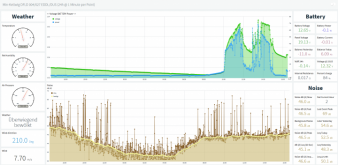This seems like a really cool idea to reduce clutter of having a system to monitor your RE system (assuming your system doesn't require proprietary and/or Windows software). All you need is to connect a display.

 www.raspberrypi.org
www.raspberrypi.org

Buy a Raspberry Pi 400 Personal Computer Kit – Raspberry Pi
Raspberry Pi 400 is your complete personal computer, built into a compact keyboard. Featuring a quad-core 64-bit processor, 4GB of RAM, wireless networking, dual-display output, and 4K video playback, as well as a 40-pin GPIO header, it's the most powerful and easy-to-use Raspberry Pi computer yet.





